Securing an abundance of
clean and green energy for
India and the world.
HIGHLIGHTS OF FY 2022-23
0 %
INCREASE IN RENEWABLEENERGY CONSUMPTION
0.0 MILLION GJ
ENERGY SAVINGS THROUGHCONSERVATION EFFORTS
Integrated and aligned with national and global standards
UN SDGs
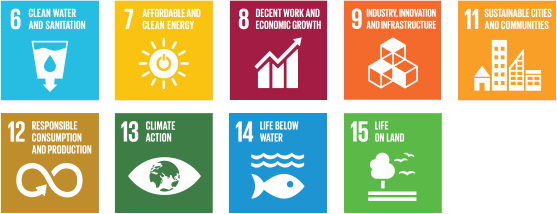
Material Topics
Managing Environmental Impact
Climate Change
Energy Efficiency of Operations
Ecosystem and Biodiversity
Waste Management and Circular Economy
Water and Effluent Management
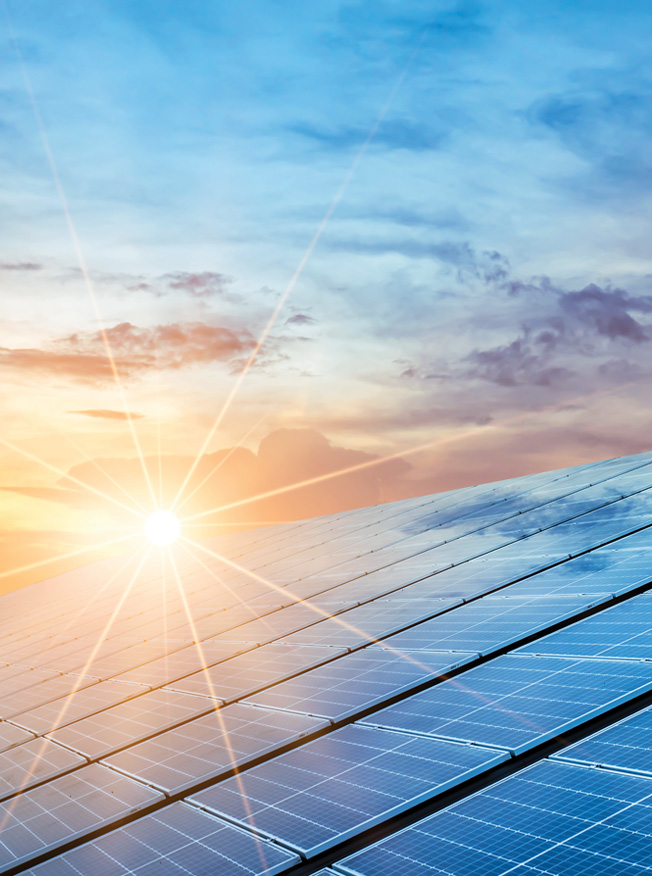
Reliance is taking concrete actions to manage environmental impact and meet its Net Carbon Zero goal by 2035. The Company recognises the opportunity that a ‘Just Transition’ to a greener tomorrow presents. Therefore, Reliance is promoting the adoption of clean energy while addressing related risks and protecting stakeholder value. The Company’s endeavours to establish a world-class, modular, and scalable New Energy and New Materials business will play a key role to make clean energy accessible to many. Powered by strategic partnerships, innovation and a robust technology foundation, Reliance is making significant contributions to the collective effort to address the impacts of climate change, one of humanity’s most pressing issues.
The philosophy of ‘We Care’ is deeply rooted within Reliance. It underlines the Company’s bold moves to pave the way towards a more sustainable future for humanity led by a comprehensive strategy and roadmap to achieve its Net Carbon Zero ambitions by 2035.
Reliance’s New Energy and New Materials business is poised to be the key driver of the Company’s transformational evolution to accelerate the global transition to a more sustainable and responsible future. The Company announced an ~ `75,000 crore investment over the next three years to establish a fully integrated New Energy manufacturing ecosystem, with ambitions to double this investment once proven at scale. The Company aims to become the world’s leading manufacturer and supplier of green energy. It is building one of the largest green energy manufacturing ecosystems fully integrated with secure and self-sufficient supply chains backed by advanced technology, talent development, and strategic partnerships. Reliance’s New Energy and New Materials ambitions are geared to help India become a net exporter of energy and strengthen the indigenous R&D base.
~`0,000CRORE
INVESTMENT ANNOUNCED BY THE COMPANY TO ESTABLISH A FULLY INTEGRATED NEW ENERGY MANUFACTURING ECOSYSTEM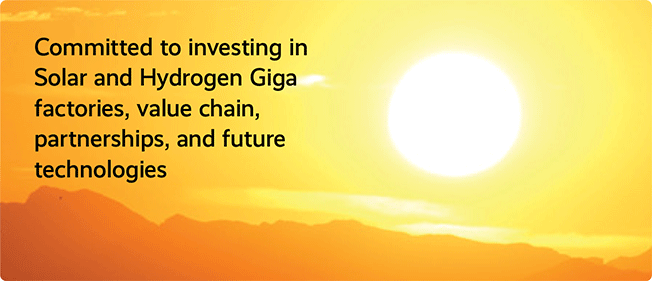

The world is entering a new energy era, which is going to be highly disruptive. The age of fossil fuels, which powered economic growth globally for nearly three centuries, cannot continue much longer.
Shri Mukesh D. Ambani
Chairman and Managing Director
Management Approach
The Company has a comprehensive and result-oriented governance framework to monitor and manage its natural capital consumption, coupled with detailed annual environmental and sustainability action plans that are regularly evaluated and updated.
A dedicated ESG committee has been instituted at the group level to facilitate supervision over the implementation and review of crucial initiatives, with the aim of ensuring progress towards the attainment of its Net Carbon Zero goals. The Company’s HSE policy is designed to improve its environmental practices and minimise adverse impacts on the environment and community through responsible energy usage and monitoring of waste products. Additionally, the Company ensures compliance with all statutory health, safety, and environmental requirements. Stringent HSE audits at regular intervals monitor and administer the implementation of globally benchmarked standards across the Company’s operations. Details about the Company’s Health and Safety initiatives are available in the Human Capital section on Read more.
The Group Safety and Operational Risk team evaluates business plans every quarter and conducts independent reviews of unit and site environmental aspects at the segment and site levels. The reviews span the asset lifecycle covering implementation, operation, and closure. Comprehensive internal and external audits boost the Company’s efforts to enhance and evolve its compliance systems and processes to stay compliant with dynamically changing business and regulatory requirements.
The Board-level CSR and Governance committee oversees Reliance Foundation’s activities and its positive impact on the environment. The Board’s regular monitoring is a testament to Reliance’s proactive approach to ensuring transparent operations and responsible growth.
The Company is leveraging the expertise and experience of its New Energy Council (NEC), a group of leading global technocrats and thought leaders, to accelerate its transition to clean energy. NEC is enabling the creation of a strong foundation to realise Reliance’s vision of the New Energy business – its strategic advice on innovative technologies and partnerships will help the company mitigate the risks posed in these novel areas.
Reliance is leveraging the expertise and experience of its New Energy Council (NEC), a group of leading global technocrats and thought leaders, to accelerate its transition to clean energy.
Environmental Performance
Managing Environmental Impacts
Reliance’s environmental stewardship drives the Company’s responsible and holistic growth that creates shared value for stakeholders. The Company’s activities span a broad spectrum of industries. Therefore, a multi-dimensional, cross-business environment management framework guides its activities to manage energy consumption, reduce, recycle, and reuse water and waste, minimise air pollution, prevent soil contamination, and preserve biodiversity. The rapid digitisation of the Company’s operations and deployment of cutting-edge technology solutions play a key role in optimising the use of natural resources and other utilities to reduce operational carbon footprint.
Ongoing monitoring and audits ensure that the Company stays compliant with consent terms and environmental regulations and manage GHG emissions. Technology solutions and targeted interventions help reduce energy and water usage, waste generation including minimising the flaring and venting of feed and product gases. Substantial investments in retrofitting equipment and machinery to manage environmental impact, including energy consumption, are in place. A continuous Emission Monitoring System (CEMS) enables adherence to local standards for SOx, NOx, and TPM emissions. The Company is also converting organic waste into bio-manure through vermicomposting. Strict monitoring and operational guidelines help prevent spills during hydrocarbon material storage, handling, and transportation. Reliance employees and contractors undergo regular training and refresher sessions to stay abreast of changing laws, pollution prevention measures and waste reduction solutions.

Sustainable Raw Materials in Reliance
Fashion & Lifestyle

Reliance Retail’s Fashion and Lifestyle (F&L) business is committed to using sustainable versions of commonly used fabrics like cotton, polyester, and viscose. The unit has studied sustainable processes and attributes for each fiber to address hotspots.
- For cotton, the F&L business used organic chemical-free cotton for garments. They also used mechanically recycled cotton with GRS certified material for deepening their commitment to sustainable fashion.
- For manmade synthetic fibers, F&L business used recycled polyester fiber and filament made from 100% recycled PET bottles and water from ETP in the process to reduce their carbon footprint.
- For manmade cellulose, sustainable attributes were studied for Lyocell fibre, Eco viscose with FSC certified wood and EU BAT pass certification. LCA, Higgs FEM, Higgs MSI, FSC and SFI certification, EU BAT audit papers were studied before adoption. More than 4 million meter of Viscose - Liva Eco was used during the year.
- F&L business is also exploring use of eco-friendly natural fibers like hemp, altmat, NNF, ramie, and recycled spandex for future products.
The World’s First Shipment of Carbon-Neutral
Crude Oil for Reliance

In January 2021, Reliance received the first shipment of carbonneutral crude oil in the world from the United States. The successful reception of the carbon-neutral crude oil showcased Reliance’s dedication to creating a more sustainable future and its commitment to reducing its impact on the environment.
Climate Change
Reliance has been proactive in its efforts to become a Net Carbon Zero organisation and mitigate its impact on the environment by reducing its carbon footprint.
In FY 2022-23, the Company continued to implement sustainable practices to contribute to the global effort of limiting temperature increases to help protect the environment and fight against climate change. The Company’s climate-related risk management is integrated with its group risk management process and aligns with the risk management approach outlined by its operating management system. The Company views these risks both strategically and operationally to have an overarching view of climate-related risks. To address the risks and opportunities of climate change, Reliance has committed to investing over `75,000 crore to build a comprehensive ecosystem for New Energy and New Materials in India. Reliance is prepared to double this investment to scale up the manufacturing ecosystem. The Company has a vision to become one of the world’s leading New Energy and New Materials companies. New Energy from harnessing solar and green hydrogen value chains presents a multi-trilliondollar opportunity for India and the world.
Decarbonisation Strategy
Reliance has outlined a detailed roadmap focusing on developing green energy and sustainable materials and implementing next-generation carbon capture, utilisation and storage technologies to achieve a Net Carbon Zero by 2035.
Reliance has identified several key areas to achieve its Net Carbon Zero target, including transition from fossil fuels to renewable sources, maximising sustainable materials and chemicals as part of its portfolio, and adopting carbon fixation, capture, and utilisation technologies. Reliance is also looking to convert crude to chemicals based on the Company’s proprietary Multizone Catalytic Cracking (MCC) technology. More on the Net Carbon Zero strategy is available on Read More.
Energy Transition to New Energy Solutions
As part of its strategy to create the world’s largest fully integrated green energy manufacturing ecosystem, Reliance is setting up the Dhirubhai Ambani Green Energy Giga Complex in Jamnagar to develop photovoltaic panels, energy storage, Green Hydrogen, and fuel cell systems. The Company is also building a Giga Factory for Power Electronics to link the entire green energy value chain and design and manufacture affordable, reliable power electronics and software systems that meet global performance, safety, and reliability standards through partnerships with leading companies worldwide.
Reliance is one of the largest producers of Grey Hydrogen globally. It has entered into a partnership with Stiesdal to reduce manufacturing costs and commercialise the latter’s Pressurised Alkaline Electrolyser technology. Furthermore, the Company is in advanced discussions with other leading electrolyser technology providers to establish a giga-scale electrolyser manufacturing facility in Jamnagar
Reliance aims to leverage its engineering expertise, operational excellence, and experience in efficient seawater desalination and draw on the technological innovations of Stiesdal to develop Green Hydrogen at the lowest cost possible. The Company’s goal is to commence transition from Grey Hydrogen to Green Hydrogen by 2025 after establishing cost and performance targets.
In the realm of bioenergy, Reliance is already a major user of agro-waste as a fuel for its captive energy needs. The Company aims to further the use of agro-waste and other emerging technologies to meet its energy requirements sustainably. On August 15, 2022, the Company inaugurated the first phase of its Bio-Energy Technology (BET) Centre at Jamnagar, with plans to continue expanding its presence.
Reliance’s captive energy requirements across its businesses provide a large base-load demand to consume the output of the Company’s planned giga-scale manufacturing ecosystem in Jamnagar.
The Company aims to establish 20 GW of solar energy generation capacity by 2025 to be utilised for its captive needs of round-the-clock (RTC) power and intermittent energy for Green Hydrogen production. Once the solution’s success at scale is established, the Company is prepared to double its investment to expand its manufacturing ecosystem further.
Additionally, Reliance is making significant investments in several areas of chemical production and setting up its New Materials growth engine.
Reliance’s expertise in chemistry and materials will give the Company a competitive edge in establishing a worldscale battery manufacturing facility. The goal is to start battery pack production, and scale up to a fully integrated 5 GWh cell-to-pack facility by 2024, and further scale up to 50 GWh annual capacity by 2027.
The Company will also invest in enhancing the value chain, partnerships, and future technologies, including upstream and downstream projects like:
- Integrated PV manufacturing from quartz to PV modules, including building an ecosystem of ancillary units
- Battery chemicals and components, cells and pack manufacturing and energy storage system
- Building an electrolyser and Hydrogen value chain
- Power generation to ensure round-the-clock availability for the production of Hydrogen
- Power electronics systems required to support renewable energy, such as inverters, chargers, DC-DC converters
- Renewable energy for mobility

Reliance Unveils India’s First Hydrogen Combustion Engine Technology
On February 6, 2023, Reliance unveiled India’s first hydrogen combustion engine technology. This technology utilises hydrogen as fuel and reduces emissions of harmful pollutants, improves fuel efficiency and lowers operating costs compared to traditional diesel engines. This represents a significant step forward in the development of clean energy solutions for the transportation industry in India and highlights the Company’s commitment to innovation and sustainability.
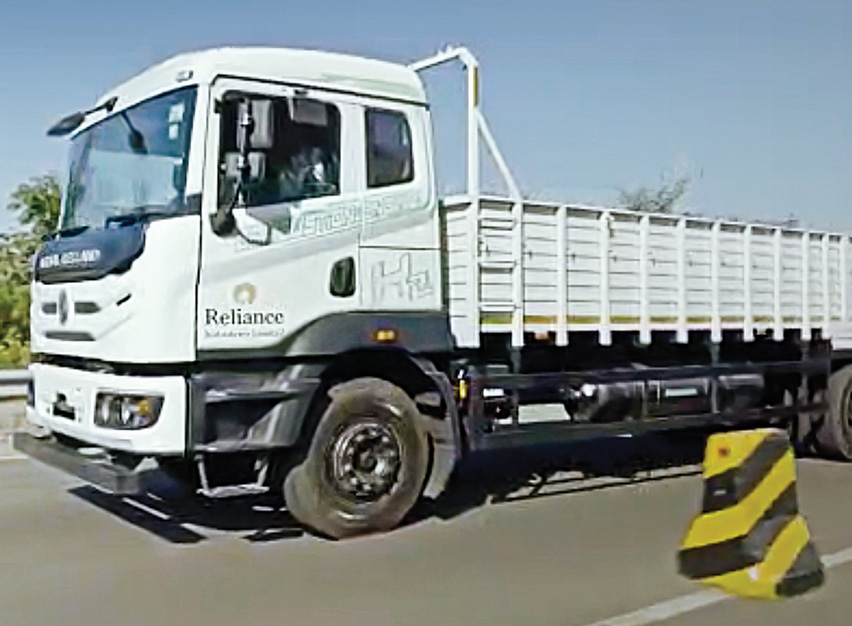
Strategic Partnerships
Reliance is focused on furthering the adoption of green mobility to reduce the environmental impact of its operations and that of the larger ecosystem. The Company is investing in and promoting electric vehicles (EVs) and related infrastructure, such as setting up charging stations across India. Reliance is creating a comprehensive manufacturing ecosystem to develop materials and management systems as well as cells to build safe and reliable batteries with high energy density and fast charging capabilities.
Reliance is partnering with Lithium Werks, Faradion, and Ambri – global leaders recognised for their advanced chemistry solutions to improve performance. Lithium Werks offers high-performance Lithium Iron Phosphate (LFP) solutions, Faradion provides sodium-ion battery chemistry, and Ambri is a leader in liquid metal energy storage solutions.
In addition to its battery ecosystem efforts, Reliance is exploring hydrogen fuel cell technology and other clean energy solutions for transportation. The Company is partnering with auto manufacturers and other stakeholders to create a sustainable future for transportation.
Jio-bp has partnered with various players across sectors to facilitate EV charging and swapping infrastructure. Collaborations include:







Reliance Jio-bp: Powering India’s transition to Electric Mobility
Reliance’s Jio-bp business unit is taking proactive steps to scale the growth of electric mobility in India. In addition to its partnerships with BluSmart and Swiggy, Jio-bp has made significant strides to enhance its offerings in the EV space. The company received the prestigious Golden Peacock Innovative Product / Service Award 2023 for electric vehicle charging service.
Jio-bp has also signed a Memorandum of Understanding (MoU) with the Mahindra Group to explore the development of EV products and services and identify synergies in low-carbon and conventional fuels. The Company has entered into an MoU with Piaggio and moEVing to explore exciting solutions in the electric mobility space.
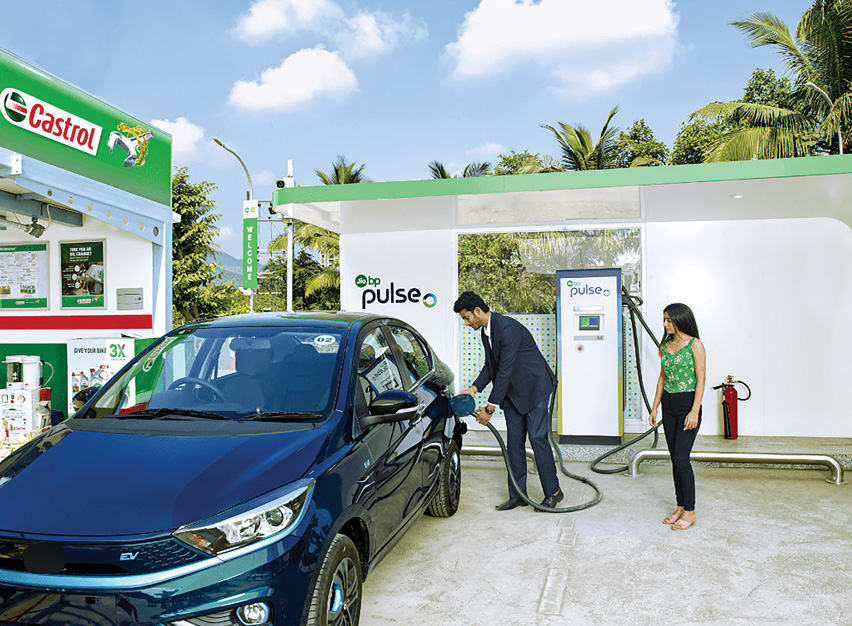
Reliance’s Green Hydrogen Aspirations
During the International Climate Summit 2021, Reliance shared its belief that India has the potential to become the first country in the world to produce green Hydrogen at a cost of less than $1 per kg in the next decade. The nation has set a goal to achieve 500 GW of renewable energy capacity by 2030. Reliance aims to establish and enable 100 GW of solar energy generation by that date. Intermittent solar energy generation can also produce Green Hydrogen for local use aligned with the Company’s goal of making Hydrogen affordable and accessible in India.
Responsible Energy use Across Business Units
Oil To Chemical (O2C) and Exploration and Production (E&P)
Reliance has consistently sought to fulfil its energy requirements while minimising the environmental impact. During FY 2022-23, renewable energy consumption across the Company’s operations saw an increase of 115% year-on-year. The Dahej and Hazira manufacturing units generated 6.1 million GJ of renewable energy, accounting for over 90% of the total green energy produced in the fiscal year by the Company. Reliance employed a co-firing strategy, using biomass in conjunction with coal at its Dahej and Hazira manufacturing units, to reduce dependency on non-renewable resources.
The Reliance O2C business incorporates Internet of Things (IoT) and Machine Learning (ML) based cutting edge digital solutions into its operations to conserve energy. Additionally, Reliance O2C has made efforts to develop synthesis gas from renewable sources through biomass gasification.
0%
YEAR-ON-YEAR INCREASE IN RENEWABLE ENERGY CONSUMPTION ACROSS THE COMPANY’S OPERATIONS

Promoting Sustainable Deliveries through EV Fleet: Jio Mart’s B2C Pilot Initiative
Reliance Retail stores worked jointly with GRAB to allocate orders to EV vehicles. The unit also owns and maintains the charging stations and batteries. Around 300 EV 3-wheelers were used by Jio Mart to cater to their B2C business. The Company is committed to promoting a sustainable transportation system where fuel consumption, vehicle emissions, safety, congestion, and social and economic access are maintained at sustainable levels to reduce and mitigate environmental damage for future generations.
Reliance Retail
Reliance Retail has undertaken various initiatives to save energy, including implementing Project LED across all its retail formats and Solar Projects at owned supply chain sites. Additionally, Reliance Retail has rolled out new initiatives, such as using thermal reflective coating on roofs, walls, facades, and window glasses to reduce energy requirements for cooling and also utilises battery-powered equipment for material handling, reducing its dependence on fossil fuels. The supply chain team at Reliance Retail has implemented several measures to reduce emissions, noise, and fuel consumption, such as turning off truck ignitions in waiting areas.
Reliance Jio
Reliance Jio actively engages with customers and suppliers to create sustainable products and initiatives. Digital connectivity helps reduce travel-related emissions. With 5G solutions, Jio is creating value in sectors such as manufacturing, healthcare, energy, and education using cutting-edge technology like robotics, automation, artificial intelligence, and smart manufacturing to fight climate change. Reliance Jio has integrated smart sensors connected through 5G technology to continuously monitor the energy consumption of equipment in facilities. The rich data collected is analysed using Connected Intelligence to optimise energy consumption and other operational parameters, increase efficiency and productivity and reduce costs. As every Reliance Jio facility becomes a connected facility, the real-time monitoring of operational parameters for effective management will be feasible, even when its people are working remotely.
Reliance Jio has set a Science Based Targets initiative (SBTi) validated target of a reduction of 76% in its absolute Scope 1 and Scope 2 GHG emissions by FY 2027-28 compared to the base year of FY 2019-20. The unit has committed to a reduction of 66.5% in absolute Scope 3 GHG emissions from purchased goods and services, capital goods, fuel and energy-related activities, upstream transportation and distribution, waste generated in operations, business travel, and upstream leased assets by FY 2027-28 compared to the base year of FY 2019-20. Reliance Jio has also committed to increase annual sourcing of renewable electricity from 1.2% in FY 2019-20 to 100% by FY 2028-29 and to continue sourcing 100% renewable electricity through FY 2029-30.
The total power consumption has increased significantly on account of 4G and 5G network expansion, however the emission increase is marginal, due to the increase in renewable energy. In addition to setting up over 161 MW of solar power at over 17,000 sites across India, Reliance Jio is also starting to use wind power and methanol fuel cells to reduce its carbon footprint. Furthermore, the unit has minimised its use of diesel generators (DG) by implementing DG run-hours optimisation initiative and Energy Saving Technology, Time Division Duplex(TDD). Through the increased use of renewable energy, Reliance Jio was able to reduce CO2 emissions by 1,56,959 tonnes.
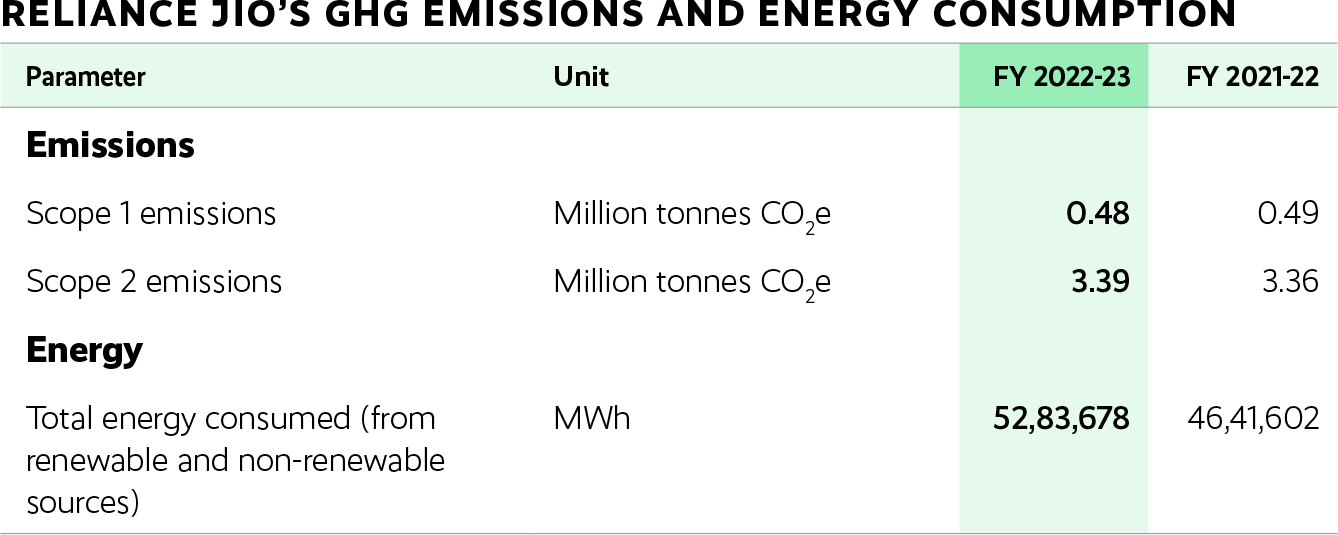

Reliance Jio won the ESG initiatives Award at the Economic Times Telcom Awards of 2023. The ESG Initiatives award was for Jio’s climate mitigation initiatives aimed at reducing its carbon footprint and transitioning to renewable energy.
Energy Efficiency of Operations
Reliance considers enhancing the energy efficiency of its operations as an important step to achieve its Net Carbon Zero target. In line with this, the Company emphasises implementing best-in-class technologies and maintenance practices to optimise energy consumption at applicable sites. During FY 2022-23, these efforts led to significant energy savings of 2.53 million GJ.
FY 2022-23 ENERGY CONSUMPTION AT RELIANCE
The energy management policy of Reliance drives the company’s strategy to manage energy based on the 5 tenets of energy management
- Eliminate unnecessary energy use through process and heat integration, quick restoration of equipment performance, consumption optimisation using simulation models, and reduce-recover-reuse programmes.
- Improve the usage efficiency of needed energy using simulation tools, deploying best practices, and technology and equipment upgrades.
- Adjust operations to reduce energy consumption by optimum use of installed capacity.
- An enterprise-wide fuel planning and scheduling mechanism is employed to optimise energy costs.
- Reduce carbon intensity of energy used by judicious selection of energy sources and ramping up the share of renewable energy to mitigate emissions from fossil fuels.
0.0 MILLION GJ
TOTAL ENERGY CONSUMPTION*0.0 MILLION GJ
RENEWABLE ENERGY CONSUMPTION** The above data is for RIL Standalone and other Hydrocarbon entities.
Reliance employs cutting-edge tools such as data analytics, optimisation models, advanced process controls, and training simulators to enhance resource efficiency while complying with Safety, Health, and environmental standards. A dedicated team at both the site and group level is focused on energy management and closely monitors energy consumption patterns across all manufacturing sites. Regular audits are conducted to improve energy performance and benchmark against other international refineries and petrochemical sites.
In an effort to reduce dependency on coal as a fuel source, Reliance is actively procuring biomass for use at its Dahej and Hazira facilities. The Company’s biomass consumption at these sites accounted for 7% and 4.7% of the respective sites’ energy consumption this year. Reliance has implemented several energy efficiency and resource conservation measures, such as energy optimisation projects, waste heat recovery, equipment upgrades, and flare gas capture. This year the volume of flared and vented hydrocarbons was 0.13 million MT.
Reliance Retail has implemented various initiatives to enhance energy efficiency across its operations. These include upgrading conventional equipment and insulating warehouse rooftops to reduce energy consumption. The team is also promoting the use of natural light and high-volume, low-speed fans to reduce energy use in warehouses and stores. Additionally, new Swadesh stores are being designed to qualify for LEED certification.
The Reliance digital business has a low
carbon intensity per terabyte of data
usage thanks to the implementation
of energy-efficient systems. Jio’s total
energy consumption in the reporting
year was 5.28 million MWh, with
0.13 MWh sourced from renewable
sources. Reliance Jio has joined the
SBTi campaign to accelerate the move
toward the 1.5°C future and set targets to decrease its carbon footprint and
emissions from network operations
significantly. As a rapidly growing
telecommunications company in
India, Reliance Jio has implemented
initiatives to optimise energy
consumption across all facilities.
These include:
- Energy-saving technology solutions in the 2.3 GHz Time Division Duplex band, which entails turning off radios during nontraffic hours (02:00 AM and 05:00 AM)
- Hot and Cold Aisle separation by installing cold air containment to avoid mixing of hot and cold air
- Smart lighting system and motion sensors for lighting load reduction in all server halls
- DG demobilisation for identified sites where low-utilised DGs are replaced with a 100 AH additional Li-ion battery
- Optimising DG run hours by prioritising batteries to run site operations in the absence of grid power
Solar Panels at Sultanpur National Distribution Centre (NDC)

Reliance Retail’s Sultanpur NDC took an important step towards sustainability by installing approximately 500 kW of solar panels. The excess electricity generated was transferred to the electricity board, and balance deducted from the bill. With 1,532 solar panels and 7 inverters, NDC transferred around 5,000 units to the grid every month on an average reducing dependency on nonrenewable energy sources and fostering sustainable growth.

REC Alpha Pure-R: Revolutionising Solar Power Generation Models
REC, a Reliance solar panel manufacturer, recently launched its latest product, the lead-free, highly-efficient REC Alpha Pure-R solar panel. This innovative panel is designed with G12 HJT cells and features an iconic design while delivering a power output of up to 430 Wp, all within a compact two square meter area. REC’s commitment to power efficiency and long-term performance is evident in this new panel. The Company’s early success is further proof of the market’s confidence in REC’s innovative technology. The REC Alpha Pure-R panel has already received orders from customers in the US, Europe, and Australia, before even starting production.
Ecosystem and Biodiversity
Reliance is committed to contributing actively to preserve and have a net positive impact on biodiversity. A detailed impact assessment is conducted for projects wherein biodiversity is an aspect, and periodic monitoring is undertaken to assess the ecosystem quality. Reliance continues to work with all stakeholders and collaborate with partners to identify approaches to progress its environmental goals.
The Company’s efforts to develop greenbelts and restore habitats have been successful, with over 2.4 crore saplings planted across India, covering over 6,500 hectares of greenbelt area. In FY 2022-23, the Company planted over 2 lakh saplings.
Waste Management and Circular Economy
A commitment to responsible growth while creating holistic value for all stakeholders is all pervasive and spans Reliance operations and businesses end to end. The Company’s commitment to a circular economy and the 3R principle of Reduce, Reuse, and Recycle guides its actions to consume resources efficiently and judiciously. Recognising the urgent need to transition to a low-carbon economy for the continued wellbeing of its stakeholders, country, and the world, Reliance is taking pragmatic and impactful measures to accelerate this change, including enhancing its internal governance framework to minimise and mitigate associated risks. The Company has embraced a multipronged approach to the circular economy, utilising a cradle-to-cradle system and identifying short, medium, and long-term strategies to enhance plastic circularity.
The Company emphasises responsible and efficient consumption and improving the circularity of resources to reduce the use of new and virgin materials. Some of the Company’s initiatives in this area include:
- PET Recycling: Reliance has a capacity of ~3000 TPM for PET bottle recycling in Hoshiarpur, Barabanki, and Nagothane. The Company has partnered with SriChakra, a leading recycler, to establish a PET bottle recycling plant in Andhra Pradesh, which will more than double its recycling capacity to 5 billion bottles per year
- Waste to Road: Reliance has implemented ReRoute™, an innovative technology that reuses difficult-to-recycle, end-of-life flexible plastic packaging waste to build durable roads. Testing results from CRRI show that 8% of bitumen can be substituted with the material generated from ReRoute™
- Waste to Oil: The Company is developing an in-house technology for chemical recycling (Pyrolysis Oil). A 10 TPD demonstration plant has been completed, and product trials are underway
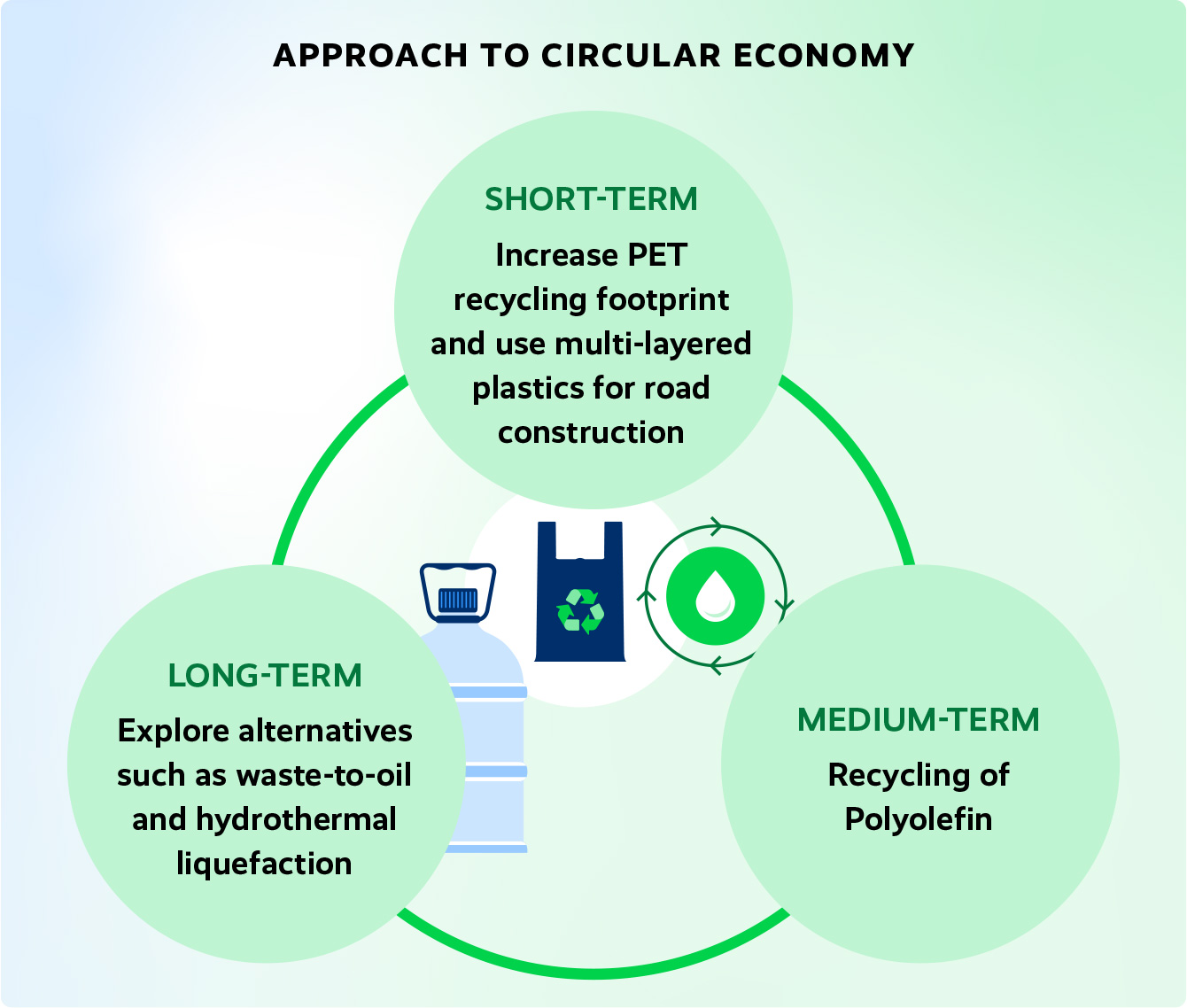
- PO Recycling: Reliance is establishing Polyolefin recycling capacities through a combination of asset-light models and buy-andsell arrangements. Initial trials with various vendors are in progress
- Green Polyolefin: Reliance offers sustainable packaging solutions in the form of green polyolefin products for non-food and non-pharma applications, including automotive, appliances, paint pails, warehousing pellets, PE films, HDPE blow and injection moulding, and raffia bags
- Alternative Fuels & Raw Material: Hazardous waste from Reliance operations is recycled as alternative fuels and raw material for the cement industry
- Circular Polymers: Reliance is in the process of creating fully circular polymers through ISCC certification at the Company’s refineries and crackers using postconsumer plastics
- Commercialisation of the Reliance Catalytic Hydrothermal Liquefaction (RCAT-HTL) technology is underway through licensing or collaborations with waste management companies. A 25 TPD/100 TPD demo plant is being established to run with selected feedstock. It will also utilise the RCAT-HTL by-product stream
Reliance is committed to reducing single-use plastic. In accordance with government requirements, the Company has ceased all supplies of plastic material to processors of single-use plastics. Contracts and invoices with customers now explicitly state that the products provided by Reliance should not be used for singleuse applications.
Furthermore, the Company has taken the extra step of printing a warning on each bag to discourage single-use scenarios. As a further demonstration of its commitment, Reliance is a founding member of the Alliance to End Plastic Waste.
Reliance supports several circularityfocused projects, such as developing the R|ELANTM fabric in response to the growing consumer demand for environmentally friendly products. The Company is also developing commercial scale continuous catalytic pyrolysis technology, successfully demonstrated as a pilot, which can potentially convert mixed waste plastics into Pyrolysis Oil.
Additionally, Reliance R&D is developing a cost-effective, environmentally friendly process for recycling PET-based fabric waste. The aim is to recover polyester in its intact form, separate it, and valorise both the PET and blend components.
Reliance Retail takes a proactive approach to managing, recycling and reusing the waste it generates throughout the product lifecycle. The Company extensively utilises reusable totes and crates to minimise packaging waste. Efforts are made to reuse supplier cartons whenever possible. Reliance Retail aims to move towards 100% paperless operations at its facilities.
Reliance Retail’s packaging is based on the core principles of a sustainable circular economy, focusing on reducing packaging materials and related waste, reusing multi-use packaging, and recycling waste packaging into materials for new packaging items. Reliance Jewels, for instance, uses carry bags and envelopes made from recycled paper in its stores.
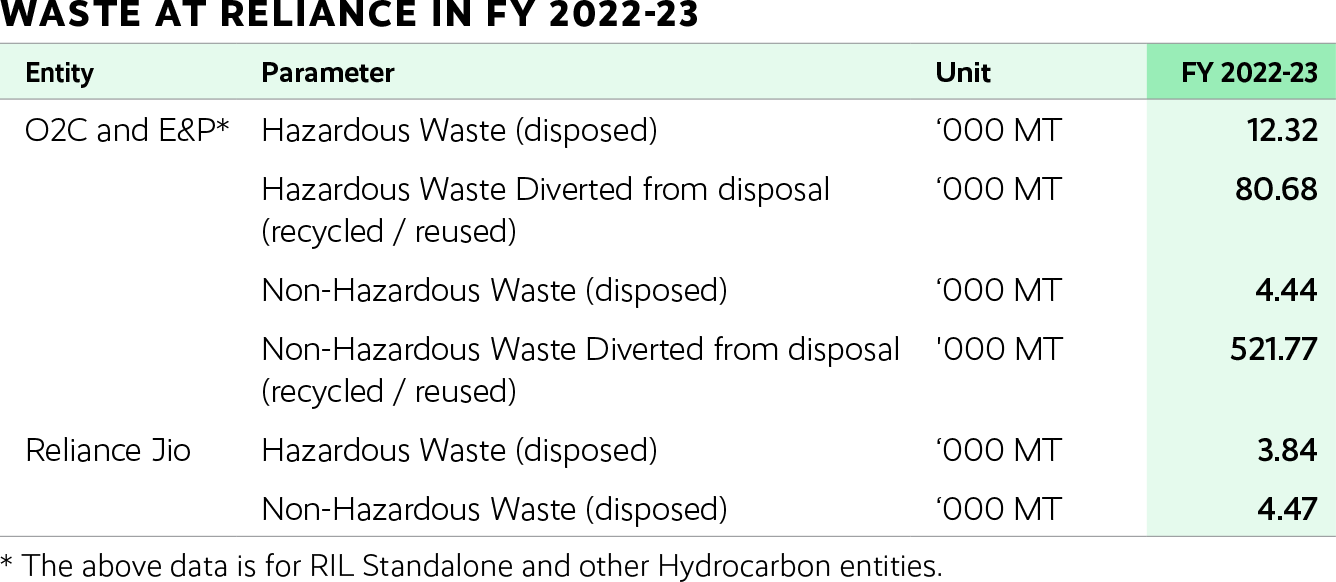
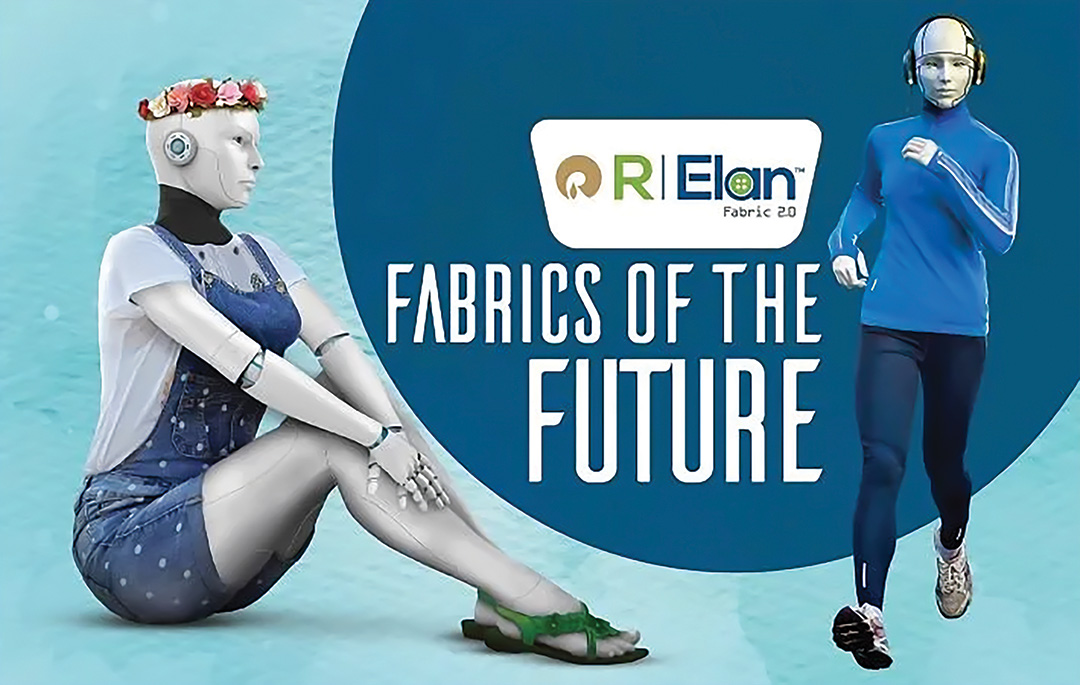

Reliance Retail – Zero Waste Stores
Reliance Retail has implemented an initiative to establish zero-waste stores as part of its commitment to environmental sustainability. This initiative involves the collection of waste from various retail stores, which is then transported to processing centres. At the processing centres, the waste is sorted into different categories, including plastic, glass, e-waste, metal, organic, and mixed waste.
The organic waste is composted, while the dry waste is further segregated into various groups. The plastic waste is chopped and sent for the manufacturing of plastic products. The used papers are processed for making paper products, and the metal is sent for melting and reuse. The e-waste is sent for further processing.

Reliance Retail – Plastic Waste Recycling
Reliance Retail has taken significant steps towards reducing waste and promoting sustainability. The Company initiated a programme to collect plastic bags and Tetra Packs for recycling into useful products. In 2022, Reliance Retail collected 1.57 million cartons weighing 11,797 Kgs and utilised them to manufacture 100 desks, which were subsequently donated to four schools. In 2023, Reliance Retail collected a million cartons weighing 8,047 Kgs and utilised them to manufacture 10 garden benches and 100 desks which were donated to underprivileged schools.30 Tetra Pack collection bins were also donated as part of this programme.
In addition to this, as part of the green initiative, Reliance Retail conducted ten staff training programmes, eight webinars, and fifteen eco workshops. The unit also performed an audit and branding of 54 stores and donated over 100,000 smart small eco-friendly products.
Reliance Retail has successfully reduced plastic usage by introducing biodegradable and virgin paper bags. Currently, recycled paper bags are being used in grocery stores across 12 states and biodegradable bags in 15 states. To further reduce waste, open delivery options have been rolled out in certain cities without bags. In Mumbai, Milk Basket and JioMart have successfully stopped the use of polybags for almost 70% of their orders. Reliance Retail has also started collecting plastic bags and tetra packs returned by customers to bring to life the Company’s commitment to make the ‘best out of waste’.
0.0 MILLION
CARTONS WERE COLLECTED AND UTILISED TOMANUFACTURE DESKS THAT WERE DONATED TO
SCHOOLS
Sustainable Packaging
Reliance Jewel’s Distribution Centres have entirely replaced LDPE film-based Bubble wrap with honeycomb paper wrap packaging, starting December 2022 across India. Honeycomb Paper Wrap is a sustainable, cost-effective, and space-efficient packaging solution made from 100% Kraft Paper that is biodegradable, compostable, and easily recyclable. Its lightweight nature and flexible storage capabilities makes it an efficient packaging solution. Additionally, it provides ample cushioning to safeguard products during transit. It can be used to pack a wide range of delicate and oddly shaped items without requiring additional tools or equipment.
RECYCLE AND REUSE
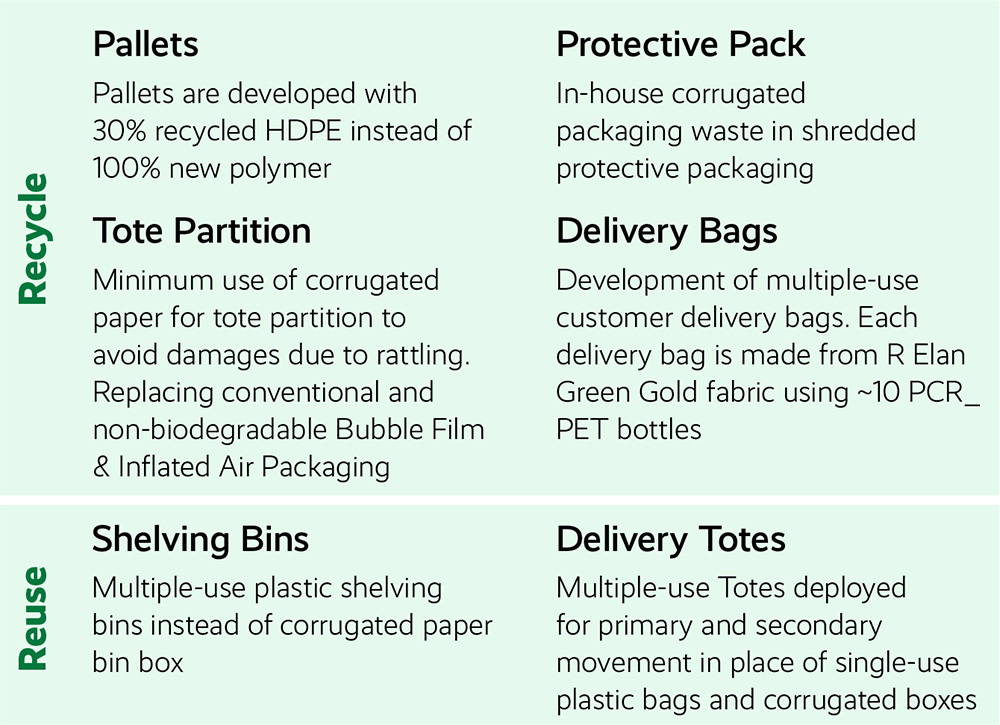

Lakmé Fashion Week and FDCI Team up for Sustainable Fashion at Jio World Convention Centre
Lakmé Fashion Week collaborated with FDCI to achieve carbon neutrality by implementing sustainable practices. These initiatives included distributing reusable water bottles to the entire event crew, which resulted in saving up to 15,000 single-use plastic bottles and 1500+ litres of water. Green power was utilised at the Jio World Convention Centre (JWCC), Mumbai saving carbon emissions of 400 tonnes. Show invites were collected to minimise paper waste, and 67 kgs of show invites were recycled into books/diaries for underprivileged kids. Waste management on-site was optimised by setting up an on-site composting setup at JWCC. A live recycling centre was set up to recycle single-use plastic into fashion and lifestyle accessories as giveaways for those who brought plastic to the centre, which offset up to 3 tonnes of carbon emissions. An online carbon footprint calculator was introduced for guests to estimate their emissions to reach the venue and encouraged them to plant trees to offset the same. Production guidelines were shared with all stakeholders to encourage the use of sustainable materials. JWCC provided an apt platform to help Lakmé Fashion Week and FDCI realise their sustainability commitment and minimise carbon emissions in the fashion industry.
Water and Effluent Management
Reliance sources significant volumes of water to run smooth operations. The Company has a comprehensive approach to reducing freshwater withdrawal and consumption in line with its sustainability commitments. It focuses on maximising recyclability and minimising external discharge by deploying advanced technology solutions and stringent governance measures, including monitoring usage, reviewing performance and complying with applicable regulations.
Reliance is also prioritising maximising wastewater recyclability and treated water reuse by increasing rainwater harvesting, improving water efficiency in manufacturing, and using treated wastewater for domestic purposes.
Reliance has made substantial investments in automation to enhance operational efficiency and productivity, leading to a decrease in overall water consumption. The Company* withdrew a total of 224.9 million kilolitres of water during the year, of which 36.7 million kilolitres was discharged and 104.8 million kilolitres recycled. In addition, the Exploration and Production vertical has reported 4.8 million kilolitres of produced water.

WAY FORWARD
Reliance is transforming its operational approach and designing sustainability roadmaps to reach its goal of becoming Net Carbon Zero by 2035. The Company recognises the urgent need to address the global challenges of climate change and is taking decisive action to decarbonise its operations and transition from fossil fuels to cleaner, greener forms of energy. To achieve this goal, Reliance has made significant investments and is actively seeking strategic partnerships to help drive the transition to clean energy not only in India but also globally. This forward-thinking approach by Reliance is a critical step in addressing climate change and demonstrates the Company’s commitment to building a sustainable future for all stakeholders.

